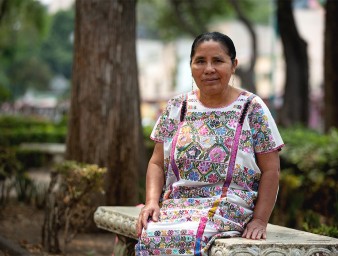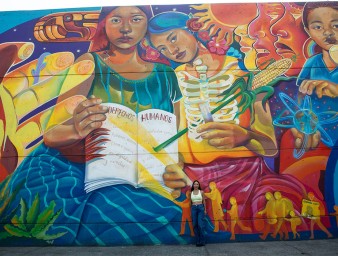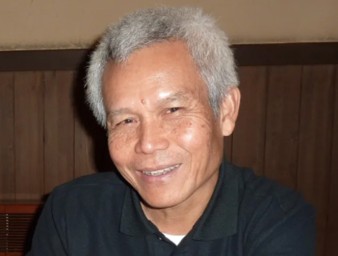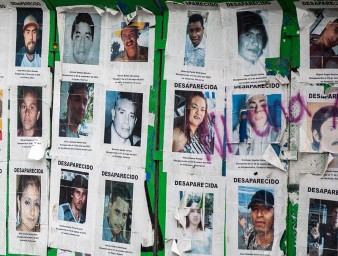The hashtag that went around the world
20 December 2022
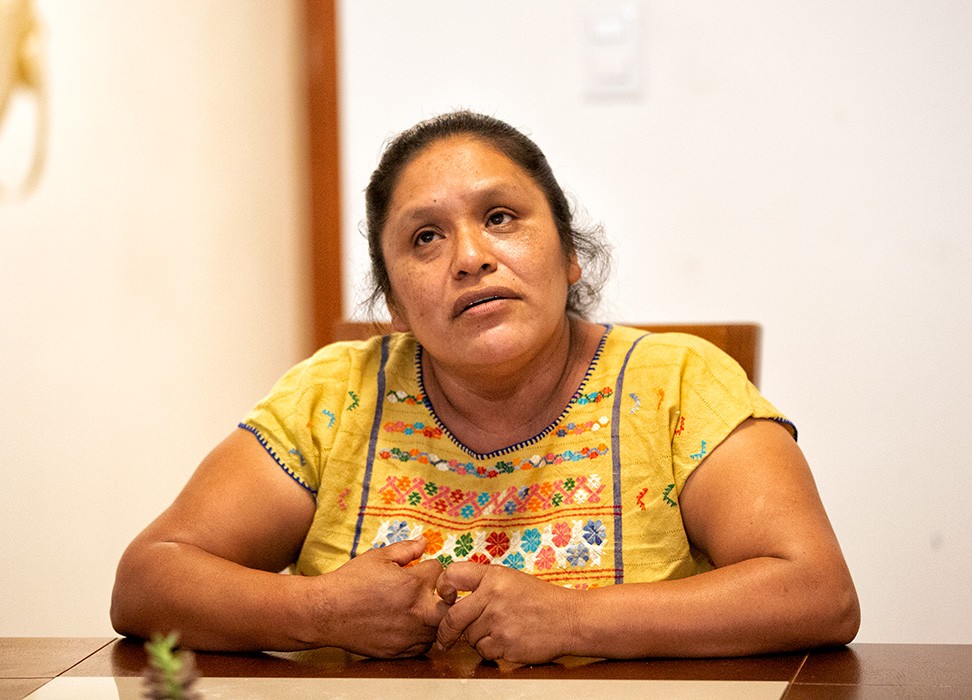
Hashtags, those little phrases that pepper social media chatter, are often overlooked, or innocuous. Rarely do they help save lives.
Yet in February 2019, an unobtrusive little hashtag helped do just that.
The municipality of Ayutla de los Libres is a mountainous farming community in the hills of Guerrero, the south western Mexican state to which Acapulco belongs. The town is known for its hibiscus flower farms, and for growing maize, chilies, gourds, and bananas. But it also has a reputation for recurring drug-related violence, past military excesses, and periodic abuse of the indigenous community which calls it home.
In Ayutla de los Libres, this translated into such horrors as forced sterilization campaigns and mass murders during the 1990s, the rape of two indigenous village women by soldiers in 2002, and the murder of two human rights defenders in 2009.
Making of an advocate
From this turmoil emerged Obtilia Eugenio Manuel, a Me’phaa community activist. Her soft voice belies the steely determination that makes her such an effective advocate for the indigenous rights group Organization of the Me´phaa Indigenous Peoples (OPIM, in Spanish), which she co-founded with Cuauhtémoc Ramírez, an agronomist who would become her husband.
“I was 15 when I first became an activist,” she said. “People laughed because I was so young, but I had seen violence against women. A man once beat his pregnant wife, and her unborn baby died. She was too scared to bring charges against him and even though he was arrested, he was quickly released.”
When she heard about the two women’s rapes by soldiers, she took up their case with vehemence, receiving frequent death threats as a result. She had reason to worry because crimes in Mexico are often unpunished, especially when committed by authorities or organized crime. More than 100,000 people have disappeared without a trace in Mexico, and indigenous women are particularly vulnerable.
Despite receiving ongoing threats, she decided to continue her activism.
“I started working to help defend these women. We all deserve to live well without violence.”
Eventually, the threats against her would become so unrelenting and brutal that the Inter-American Court of Human Rights ruled she needed official protection.
By 2019, she was back in Ayutla and had been elected a member of the municipal government. Part of her job was to oversee public works budgets, and she soon uncovered irregularities in spending, as well as the involvement of drug traffickers. Manuel spoke up.
Later that year, as Manuel was leaving town in a taxi with another human rights defender from OPIM, Hilario Cornelio Castro, a car cut them off.
“They grabbed us both and threatened to cut off one of my fingers. They put us face down, they covered my mouth and eyes and hit me on the head,” she said. “I thought I would not make it out. Others before me had disappeared. I worried they would go after my children next.”
But Manuel and Castro were released within four days, thanks to a hashtag and a lot of work.
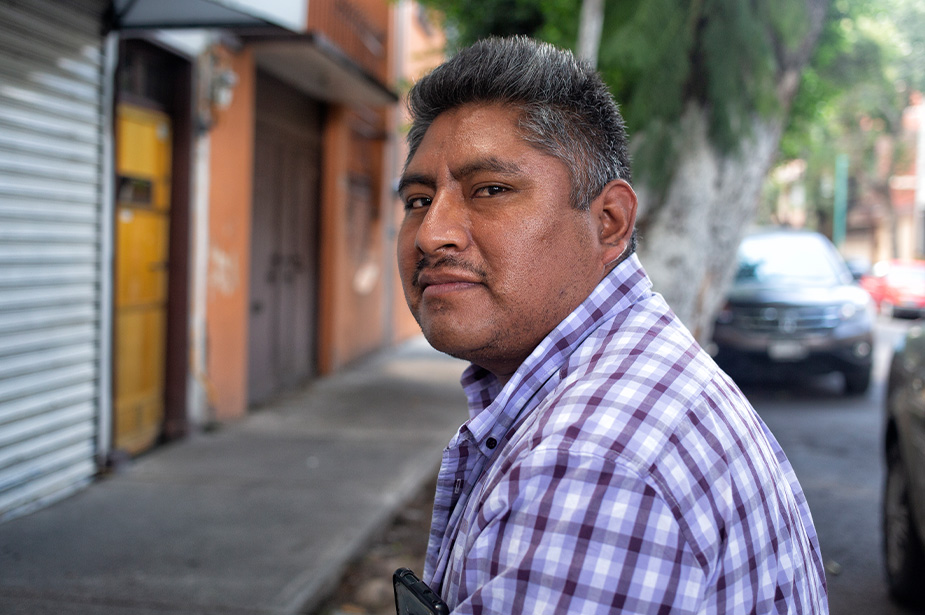
Hilario Cornelio Castro, indigenous rights defender, was taken along with Obtilia Manuel. © Consuelo Pagaza
Hashtag activism
Manuel’s release after 96 hours in captivity may have seemed miraculous, but it was the outcome of intense work behind the scenes.
“We found out about Obtilia’s disappearance within half an hour, even if communications were complicated,” said Jesús Peña, Deputy Representative of the UN Human Rights Office in Mexico. “We had to react quickly with state and federal officials.”
As soon as news of the abduction surfaced, the Office sought information, concluding that state and local authorities could either be involved or perhaps be able to communicate with the kidnappers – that there was a chance public pressure could work. Urgent meetings were held with the state governor, the state general prosecutor, and the federal government became involved. Increasing national and international pressure was brought to bear on local authorities.
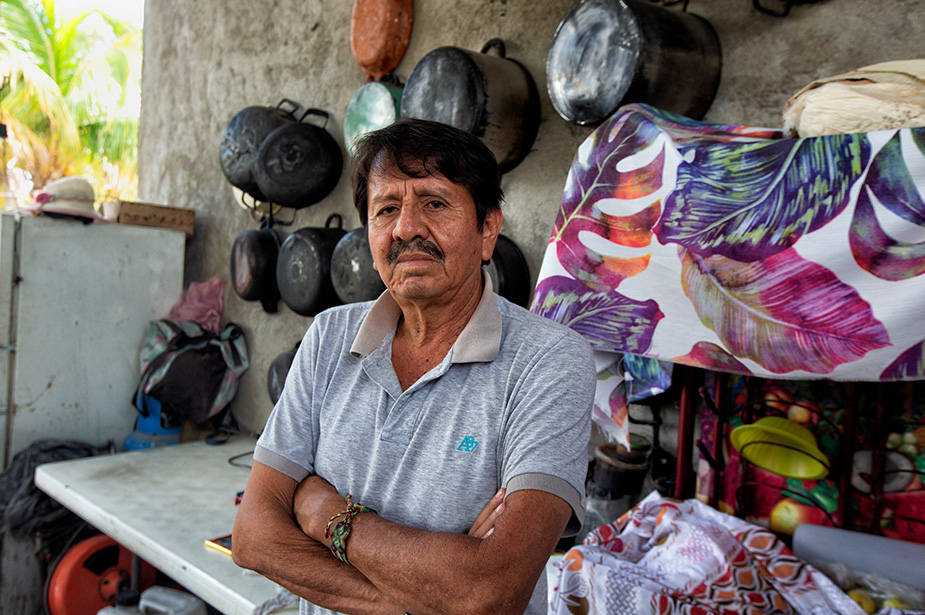
Cuauhtémoc Ramírez Rodríguez, human rights defender and agronomist, is the husband of Obtilia Manuel. © Consuelo Pagaza
As part of its strategy, UN Human Rights issued public statements condemning the kidnapping and demanding Manuel and Castro be released alive. Within hours of the abduction, it had produced and started disseminating a video and photographs demanding that Manuel be found alive.
Also highly effective was the launch of a social media campaign whose hashtag, #QueremosAObtilia (#WeWantObtilia), went viral in Mexico. The social media effort, fuelled in large part by long-time partners in civil society groups, was rapid and effective, trending on Twitter and accumulating hundreds of thousands of views.
Meantime, while hoping for her release, her husband, Cuauhtémoc Ramírez, prepared for the worst.
“I really thought I would never see her again, so I gathered the children to tell them. At that very moment, I received a call from Obtilia,” he said.
National and international pressure had succeeded: Manuel and Castro were dropped off on a country road, a full four days after their abduction.
“This pressure is why I'm alive,” Manuel said, “and I’m very grateful. What they did worked.”
A life in hiding
Manuel and Castro might be free, but they live in the shadows, in a shelter under official government protection. This is the second time Manuel has been forced to move from her home and become an internally displaced person.
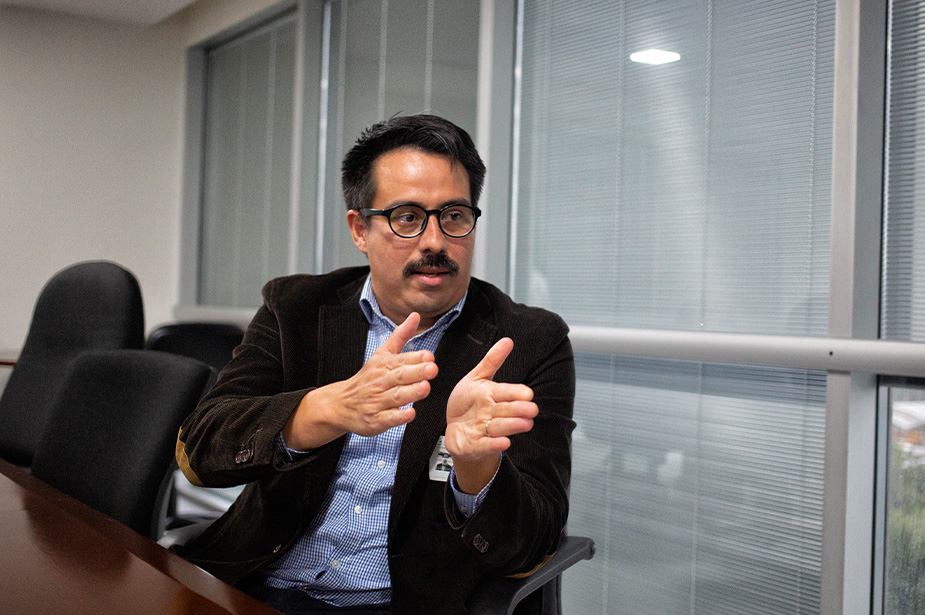
Jorge Ruíz del Ángel, Director General of the Protection Mechanism’s Case Reception and Rapid Reaction Unit. © Conseulo Pagaza.
The Protection Mechanism for Human Rights Defenders and Journalists was born in 2012 because of widespread pressure to end the growing violence against human rights defenders and journalists. Through this Mechanism, different levels of government provide security measures that allow individuals who seek its protection to live lives with less fear and danger.
“The Mechanism is not perfect, but it has saved lives,” explains Jorge Ruiz del Ángel, a lawyer who has worked with the Mechanism. “There would be more assassinations without it. But it can be strengthened because, in the end, it is not sustainable.”
For many years, NGOs have maintained that reinforcing the Mechanism is not enough: there must be an end to the impunity criminals often enjoy when they murder and attack human rights defenders and journalists.
In 2019, UN Human Rights accompanied Manuel when she received the National Human Rights Prize from the President of Mexico, confirming her advocacy work and acknowledging the importance of protecting indigenous women. Manuel believes some good has come out of their ordeal.
“I feel the country is now more open, and the issue of killing women is now spoken about openly. What we need is to apply the laws that protect women,” she said.
Despite their relative safety, Manuel and Castro are anxious to return home to their families and their community work. They see their loved ones once or twice a year, visits that require extensive planning and logistics. Otherwise, they communicate online or by phone, which they also use for their human rights work.
“We asked the authorities to do a risk assessment to see whether it is safe for us to return to Guerrero; that is what we are waiting for,” said Manuel.
